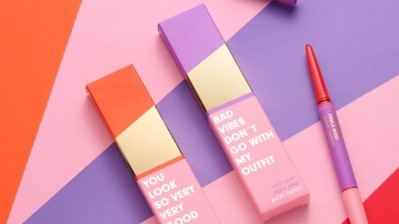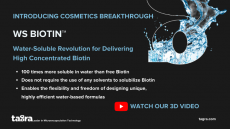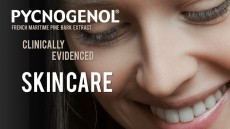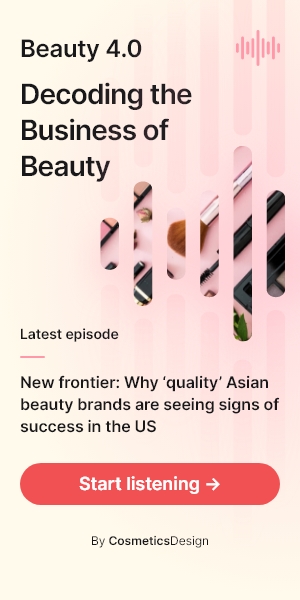“Stories need to be told; real, raw emotions need to be experienced”: how to PR a beauty brand in 2024

Here she shares six insights on what it takes to properly PR a beauty brand going into 2024…
Find, then communicate, your brand ‘heartbeat’
Marketing is about connection. It’s about humanising your brand rather than simply shouting: ‘We’re the best! Buy us! Sometimes, people forget where they started and that has a detrimental impact on their communications strategy. At the beginning of every business – big or small – is someone, somewhere, with a reason for doing it. This needs to come through within a brand’s communications strategy.
Once you’ve found your brand’s ‘heartbeat’ you need to communicate it. By that, I meant that you need consumers to really understand what this brand is about. The best way to do this is to ‘show’ rather than ‘tell.’ In other words, people need to read about what they’re buying to feel a deep connection. Stories need to be told; real, raw emotions need to be experienced.
Have a crystal-clear end goal
Knowing what your end goal is one of the keys to a successful business. Are you looking for more clients? Are you looking to expand to a global market? Are you hoping to launch a bricks-and-mortar offering? Having a very clear idea of what you want to achieve before you set out to do it is vital.
Be honest and ambitious
Being honest and ambitious with your goals is often overlooked but it is very important. You can help to achieve this by being honest about what you have to say to your target audience and recognising how that will make them feel. What can you educate them about? Which publications would mean the most to the consumer you’re trying to attract and how would this link up to your end goal?
Don’t forget about ‘invisible PR’
Invisible PR is what people think of you/your brand or business and say about you when you’re out of the room. It’s a series of tiny, often seemingly inconsequential things, which, put together, matter hugely. This is the subconscious response that you and your brand evoke for everyone who comes across it. It’s your reputation and how others will decide to view you for years, even decades, to come.
Ultimately a brand is not what you tell people it is, it’s what others (your consumers) agree it is! It’s something every brand and its employers need to be incredibly aware of. And it’s always the little things that matter. From the way people are spoken to on their initial introductory call, to your tone of voice in that quick email fired off to a colleague or potential client – everything matters. It’s the character of the people behind the brand and the way consumers are treated that will impact how others see the brand too. And this alone, has the power to make or break a business.
Understand the ‘brave new age of media’
Gen-Z is one of the first groups to have internet technology available at a young age, this means that they are typically more connected to social media such as TikTok than any other generation. This has a huge impact on the effect of marketing on them. As smartphone users from a young age, it means the things they see as impactful trust-markers are actually very different to previous generations. What’s more, a generation brought up with Google at their fingertips, they aren’t afraid to search for the truth and as such they are pretty discerning. This means that in PR terms that it’s impossible to pull the wool over their eyes and so effectively the traditional PR spin doctor is dead!
Understanding this brave new age of media and how it works is vital for success. Noteworthy PR comes from giving consumers something which they know they deserve; products and information to educate, inspire or help them. The bar has been raised and we must rise to meet it.
Know how to handle a ‘crisis’
Crisis management is a niche form of PR, where several strategies have to be put in place for an organisation to deal with a sudden or negative event that may be catastrophic to a brand’s reputation. The usual sequence of events should begin with a very swift statement referencing what has happened, an equally fast and authentic apology and a promise to take action and rectify the issue. A blanket apology won’t wash. It has to be heartfelt and specific to what the issue was about. Dealing with every incident head on in an authentic manor is key.
I always say a crisis can be handled a lot easier if a brand has a reputation for authenticity at the start. It means a consumer will trust again if the trust was deeply rooted in the first place. The worst thing a brand can do is deny, try to cover up, or argue against the consumers’ consensus. I also think that saying ‘no comment’ is completely the wrong decision to take. The problem with ‘no comment’ is that it really is a comment – sometimes the worst comment one can make. It may imply guilt where there is none. It can sound blasé or even incompetent.
A huge PR crisis will leave some brands’ reputations in tatters, while others manage to survive. Why? Once again it comes down to the solidarity of the brand’s reputation before the crisis hits. A twig will snap, while a solid oak will notice a small indent at most. How much the public trusted and liked the brand to begin with, alongside how the crisis was handled, will be key for a brand when faced with a crisis.
Ethics are paramount. At the heart of ethical PR is honesty. Don’t lie. Don’t cheat. Don’t Photoshop photos. Use real case studies of real people. It sounds simple and should be standard throughout the industry, but sadly it isn’t.











![Chinese study highlights mental health challenges in atopic dermatitis, emphasising holistic patient care. [Getty Images]](jpg/chinese-research-linking-atopic-dermatitis-to-mental-health-underscores-need-for-holistic-care-2.jpg)








